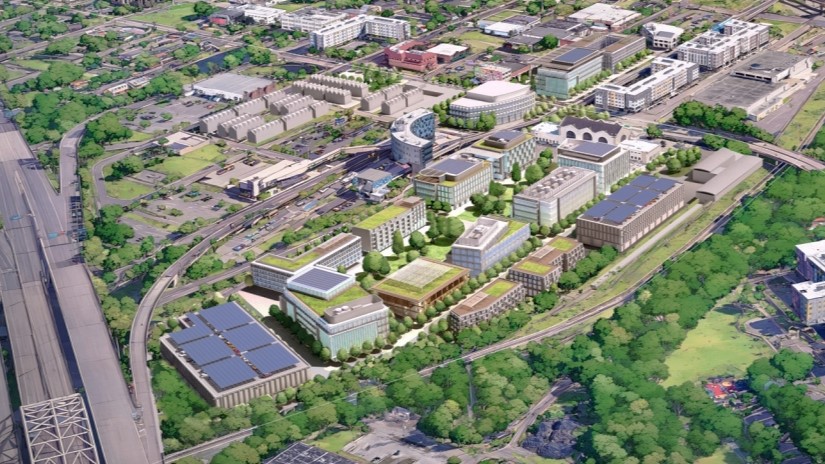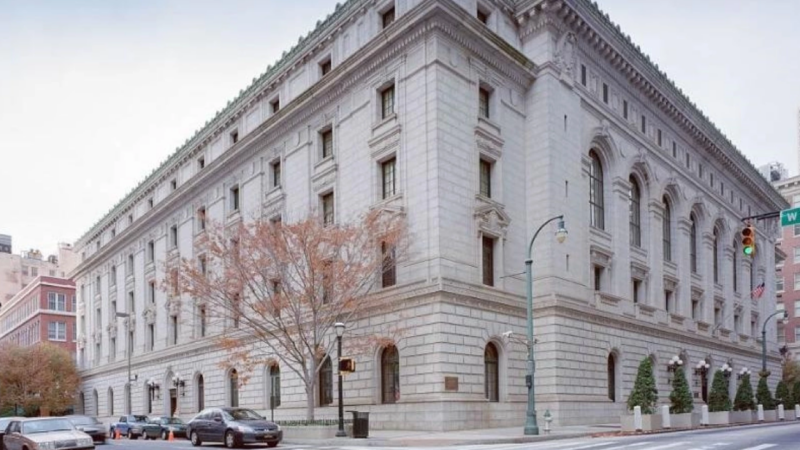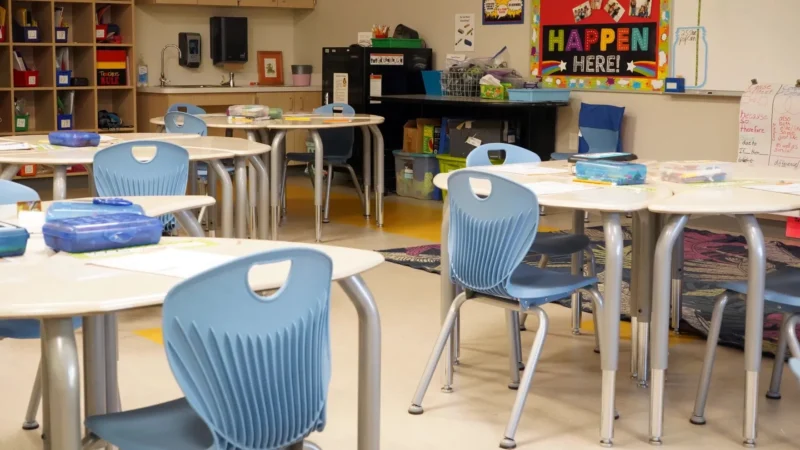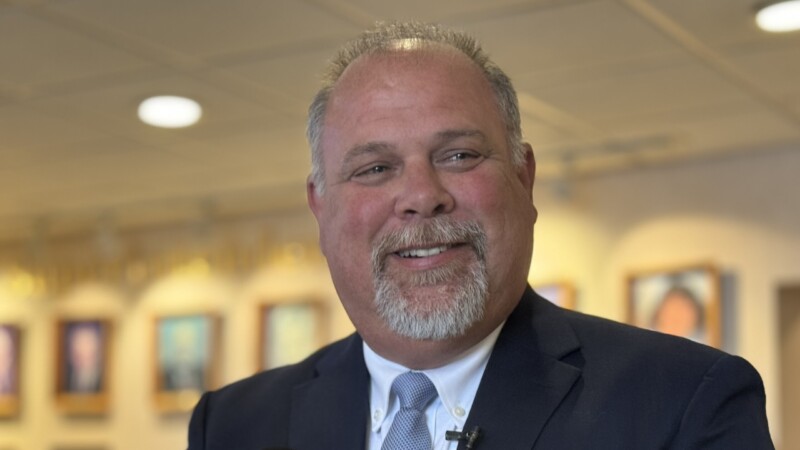The University of Florida has selected an area in LaVilla for a new graduate campus in Downtown Jacksonville centered on high-tech fields and semiconductor research.
The first classes would start by fall 2026 at a site surrounding the Prime Osborn Convention Center, the city announced Thursday.
The UF board of trustees’ Governance Committee approved the site Thursday. A full board vote is scheduled Friday.
City officials said the UF campus — which will include the Florida Semiconductor Institute — will position Jacksonville as a leader in fields including artificial intelligence, data analytics, biomedical technology and semiconductors.
“I am over the moon thrilled about this partnership,” Mayor Donna Deegan said during a news conference. “You are not going to recognize this Downtown. I know that’s been said many times, but if you can’t see the activity that’s happening down here and what this will mean to that with all these students, and the restaurants and all the other things, I think we are looking at another major piece.”
The Florida Semiconductor Institute alone will contribute more than $100 million to Jacksonville’s economy, Deegan said.
The institute is part of a national effort to improve research and development of semiconductor chips. The institute’s goal is to lower the costs of chips and improve national security by reducing the reliance on foreign manufacturing.
“UF has a bold vision for our campus in Jacksonville,” Mori Hosseini, chairman of the UF board of trustees, said in a news release. “This will be a site that will give our students an opportunity to learn and thrive in a fast-growing city with incredible job opportunities. Our goal is to create a national center of excellence and to bring our bright students to this forward-thinking city.
Campus plans
The idea to bring a UF graduate campus to Jacksonville has been in the works since February 2023, when the university and the city announced they were exploring options for the idea.
The Florida Board of Governors approved the university’s plans to get things started last March.
Three possible sites were discussed: the LaVilla site; the fairgrounds land owned by Jacksonville Jaguars owner Shad Khan near EverBank Stadium; and the Downtown campus of Florida State College at Jacksonville.
The city will work with the Downtown Investment Authority and City Council to provide 22 buildable acres to the University of Florida for the campus — with the goal of design, planning and construction beginning as quickly as possible in 2025, the city said.
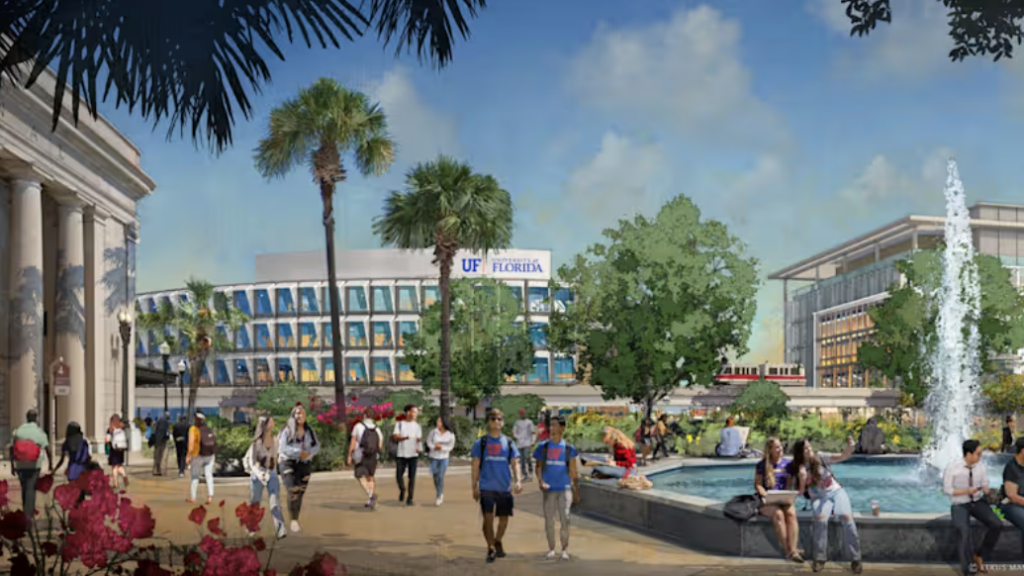
“We felt it was a strong location, not only for the students and the businesses that are around that, but for the university,” Deegan said. “It is right there by the interstate; and the fact that there is this vision of a rail system that will be around it.
“There are all lots of pluses to that area, and one big one is that we had all that vacant land that we could contribute to that process. …. They wanted an area where we could have a great deal of acreage to expand, and that was really the only site in our mind that had that.”
Between 10,000 and 20,000 graduate students could ultimately be part of the new UF campus when it is fully developed on all 22 acres, Deegan said. Initially, the university probably will use an existing building for classes when they begin in the fall of 2026. Development of two parcels close to the convention center will be built into the campus’ first permanent facilities, she said.
“They want to get started pretty quickly,” the mayor said.
Development of the new campus is all on vacant land owned by the city. No residents or existing businesses would be displaced, Deegan said.
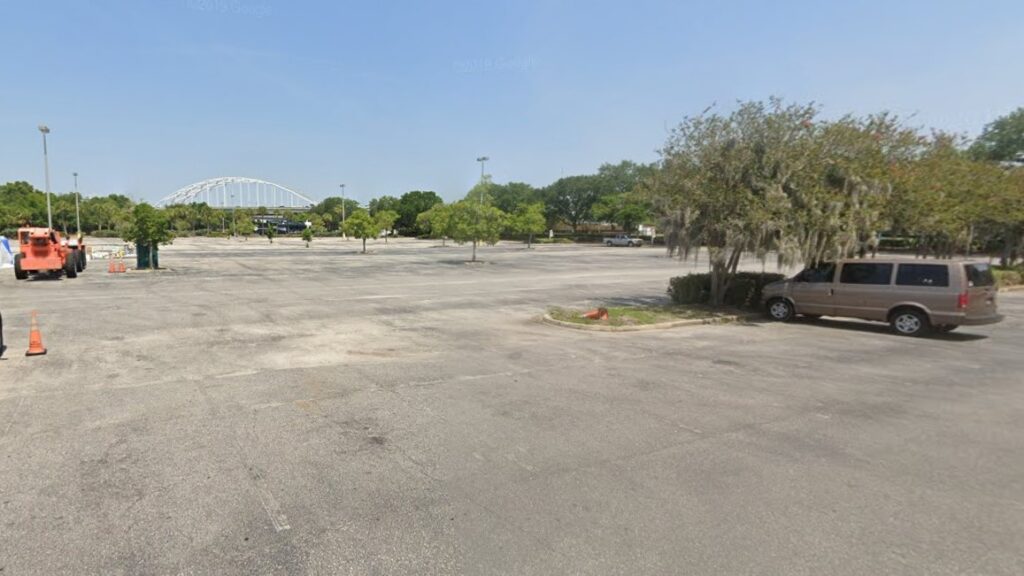
The first six city-owned lots, a total of about 3.6 acres near the convention center, will go to the Downtown Investment Authority board in January for review, so construction can start as soon as possible in 2025, the city said. Those lots are just east of the current Jacksonville Transportation Authority office.
The last part of campus construction would involve the Prime Osborn Convention Center, and that is potentially a decade away, city officials said.
The newer part of the convention center, built in 1983 when the city expanded the 115-year-old historic rail station, could be provided to UF to be used for new campus buildings. The train station with will be developed with restaurants, office space and other university uses, Deegan said.
Since the center is next to existing rail lines, passenger service could return Downtown, with a ticketing center in the existing historic building after it is redeveloped.
“There would be a rail hub that we would build,” Deegan said. “We are in discussions right now about how to build transit-oriented development around that area, and rail is certainly a part of that. “They want to take that historic part and talk about creating a vibrant hub that would benefit both the university and the city.”
A future convention center is being proposed for the land now occupied by the Duval County jail, Deegan said.
Campus financing
UF has obtained $250 million in financial commitments for the campus — $150 million from the state, $50 million from the city and $50 million from private donors.
Deegan plans to propose that the city contribute an additional $50 million over four years starting in the next fiscal year.
The Florida Semicondutor Institute has received $80 million in state funding and hopes to obtain additional federal support.
Jaguars owner Khan also committed $5 million to UF for the Jacksonville campus, regardless of whether it used the fairground site.
“Growing Downtown Jacksonville to be a versatile center for commerce, education, entertainment and lifestyle is a priority for the Jacksonville Jaguars,” Jaguars President Mark Lamping said in a statement. “Our Downtown is one step closer to that reality. … The campus will add critical programs in innovation, technology and biomedical sciences to perpetuate talent development and a career pipeline for Jacksonville, as well as create a vibrant footprint of academic and social activity in the city’s urban core for years to come.”
The graduate degree offerings are being finalized. Programs could include a professional master’s of business administration program, a master’s in management with a concentration in artificial intelligence, a master’s in engineering management with a concentration in data analytics, a master’s in computer science with concentrations in AI and cybersecurity, a master’s in the study of law and a master’s in AI in biomedical and health sciences.
Enrollment and course offerings will continue to grow in the years to come, the university says.
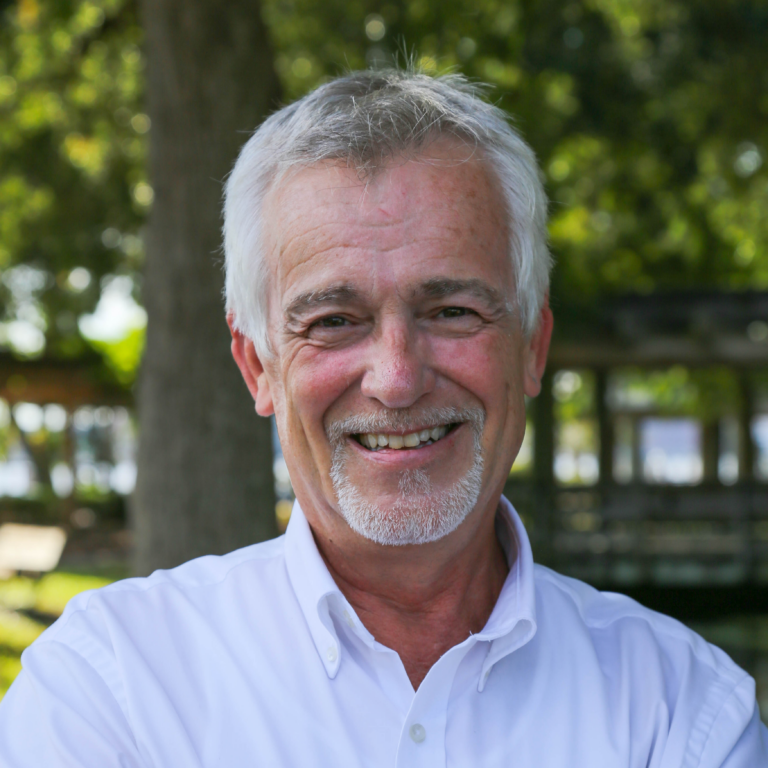
Randy comes to Jacksonville from the South Florida Sun-Sentinel, where as metro editor, he led investigative coverage of the Parkland school shooting that won the 2019 Pulitzer Prize for public service. He has spent more than 40 years in reporting and editing positions in Illinois, Iowa, Missouri, Ohio and Florida.



